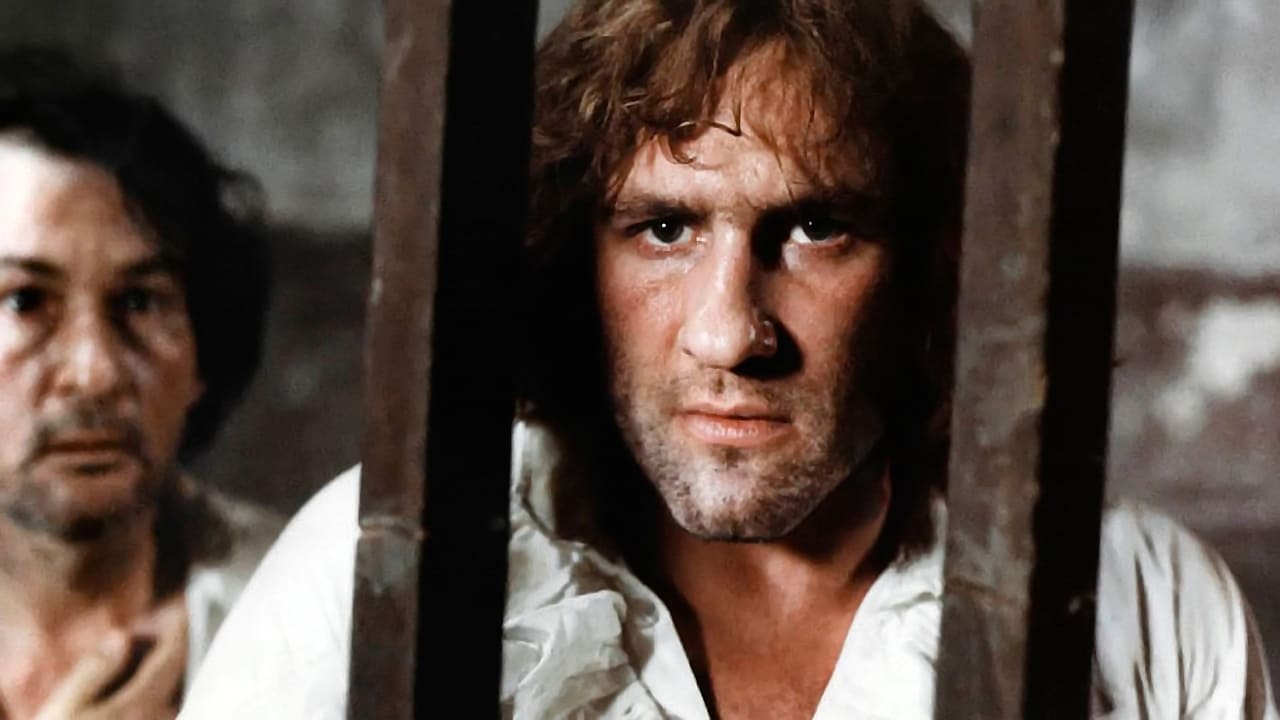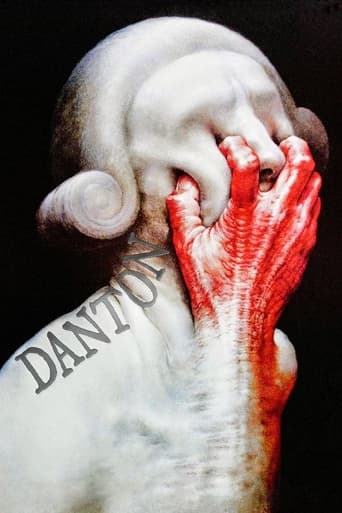



I think this is a new genre that they're all sort of working their way through it and haven't got all the kinks worked out yet but it's a genre that works for me.
View MoreBest movie of this year hands down!
A lot of fun.
The movie really just wants to entertain people.
Polish screenwriter, producer and director Andrzej Wajda's twenty-sixth feature film which was written by French screenwriter, author and actor Jean-Claude Carrière, is an adaptation of a play from 1929 by Polish author Stanislawa Przybyszewska (1901-1935). It premiered in France, was shot on locations in France and is a Poland-France co-production which was produced by producer Margaret Ménégoz. It tells the story about a French citizen, son, husband, minister of justice, revolutionary leader of the French Revolution and member of a political group called The Mountain (1792-1795) who was born in the late 1750s in a commune called Arcis-sur-Aube in the Champagne-Ardenne region during the First French Republic (1792-1804), and who in the early 1790s proposed the establishment of a court called the Revolutionary Tribunal.Distinctly and precisely directed by Polish filmmaker Andrzej Wajda, this quietly paced fictional tale which is narrated interchangeably from multiple viewpoints though mostly from the protagonist's point of view, draws a specifically historic and rhetorically grandiloquent and humorous portrayal of a thirty-five-year-old Montagnard, orator, father and the first president of the Committee of Public Safety (1793-1795) in Paris, France named Georges Jacques Danton. While notable for its atmospheric milieu depictions, reverent cinematography by cinematographer Igor Luther, production design by production designer Allan Starski and costume design by costume designer Yvonne Sassinot, this dialog-driven and narrative-driven story reflects upon the history of the now two hundred and twenty-three year old French Republic and a twenty-four-year-old invisibly visible "other" named Anne Lucile Philippe Laridon Duplessis (1770-1794) with her baby in her arms who's not seen, not heard, not acknowledged, but surrounded by accusing and self-righteous voices of men.Made three years after a trade union was founded in Gdańsk in Poland by, amongst others, a Polish politician named Lech Walęsa, five years after a Polish singer named Jacek Kaczmarski sang a song called "Mury", eighty-four years after the birth of a Polish-Jewish author named Irena Krzywicka (1899-1994), ninety-six years after a Romanian advocate named Sarmiza Bilcescu (1867-1935) became the first European woman to obtain a license to practise law from the University of Paris and hundred and ninety-two years after a human being with the first name Olympe dedicated a text called Declaration of the Rights of Woman and the Female Citizen to a person with the surname Antoinette, this retelling which is inspired by real event in the life of a renowned 18th century French advocate, depicts a dense study of character and contains a great and timely score by composer Jean Prodromidès.This ascetic presentation with a lyrical touch from the early 1980s which is set in France in the late 18th century during The Terror (1793-1794), the unofficial reign of King Louis Charles XVII of France (1785-1795) and some years after France had adopted universal male suffrage, and where a man proclaiming to be with the people is accused of conspiracy by a representative of an assembly called the National Convention (1792-1795) named Maxmilien Robespierre, is impelled and reinforced by its cogent narrative structure, subtle character development, rhythmic continuity, comment by Danton: "No more bloodshed. That's what I'm fighting for.", the versatile acting performance by French actor Gérard Depardieu and the emphatically understated acting performance by Polish actor Wojciech Pszoniak. A contextually biographical narrative feature.
View Morea parable. about dictatorship and its colors. about people as crumbs of a lunch. a manifesto for freedom from a Polish director for who a play is perfect instrument to discover a regime behind its masks. Danton is a beautiful movie but in great measure it is a profound analysis. French Revolution is not an excuse for present realities from Jaruzelski regime but way to remember the root of all Communism sins. Danton may be Trotski, prey of spider web who he build it. Robespierre - just piece of a huge machine. the fake image is only protection. the lies about people needs - only form to survive. so, the film is, in great measure, collection of symbols. the revolution - picture of a demon out of any measure. and, in this case, purpose is not to create an impressive work but to give the dimension of truth. history is only vehicle for ideas. because this revolution, ambiguous, cruel, chaotic, cynical, criminal is more than chapter of Modern time. it is shadow of each regime for who people are pieces on the chessboard. and subjects for experiments.
View MoreMany American pea-brains who worship and support the political half-truths of hucksters like Michael Moore would do well to sit through this movie more than once and see how hypnotic manipulators can scare, intimidate and lie to an underinformed public and get the people they fear or loathe killed, spindled and mutilated. Robespierre in this fine epic kills the opposition by remote control, all in a fit of self-righteous devotion to his principles. We get the impression that Robes felt it quite justifiable to snip off his opponent's heads, even as he sent his minions out to trump up false and misleading charges against the State. Today, the captains of our rotting media institutions are much more sensitive that Robes...they merely murder your character with innuendo and false charges laid down without foundation or sources. Witness Dan Rather's attempts to assassinate W's character on the eve of the 2004 election, or the constant drumbeat that the 2000 election was stolen, although constitutional scholars continue to scoff at such irresponsible drivel.
View MoreCinema, at its best is entertainment. If one is to question every aspect with which one finds room for disagreement,and much of recorded history is based on contemporary opinions - often biased - then one should leave the cinema, because their prejudices will always spoil their enjoyment. When I spotted an airplane flying overhead in a film dated 33BC I was amused. The background scenery in "Casablanca" is absurdly fake. So, do I set up a moan & say that the film failed to convince? Fiona, relax and enjoy some excellent acting. Wajda's decision to cast the protagonists as French & Polish was inspired. one was immediately aware of which side each of the main characters was representing. No need to dwell on the authenticity of the wigs. This is powerful cinema. If there is a political message which is still relevant today - have a dinner party - a Château d'Yquem with the foie-gras; a Puligny Montrachet with the entree; some Polish Vodka sorbets and perhaps a 1961 Château Lafite-Rothschild with the beef - and discuss the political aspects of Danton until you drop with fatigue. Danton would surely have agreed?
View More